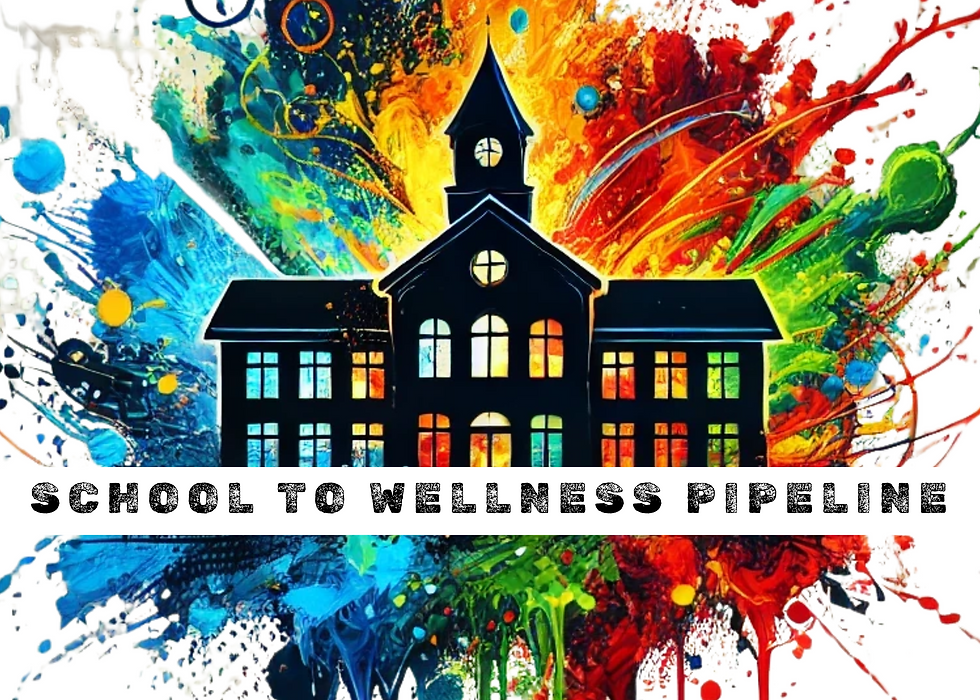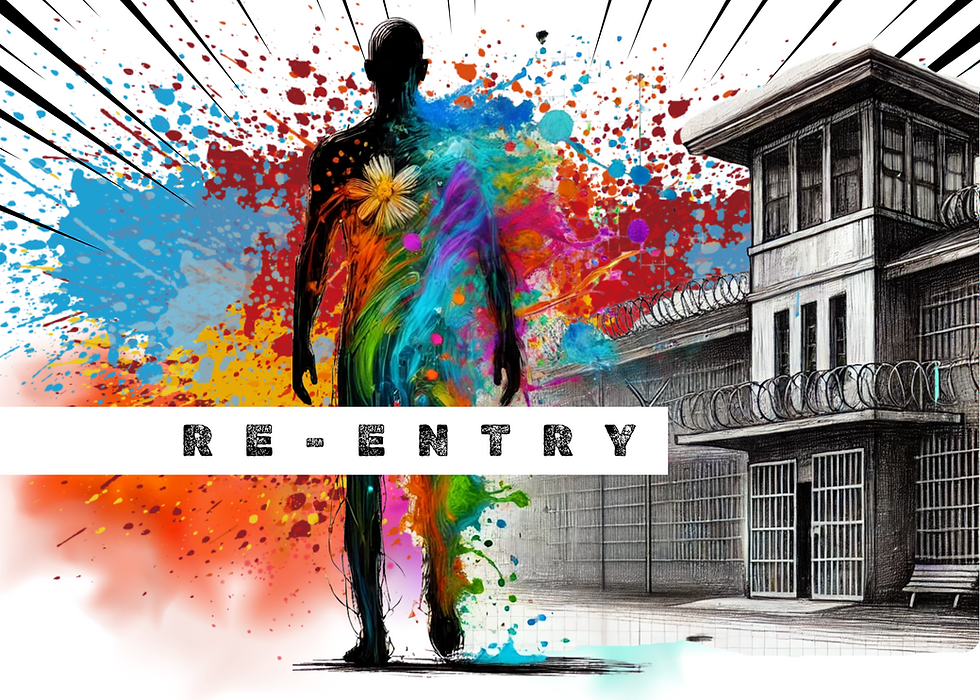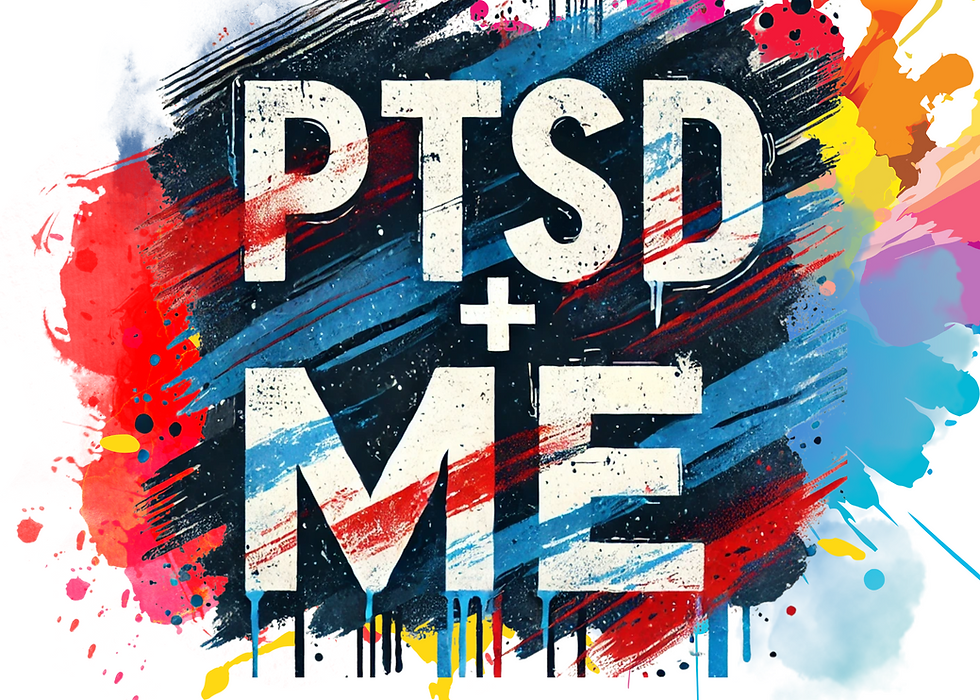Reimagining Incarceration
- Troy Rienstra

- Mar 31, 2025
- 4 min read
Updated: May 28, 2025
Transforming Michigan's Prisons into Centers for Healing and Growth
In a society increasingly focused on wellness and personal development, it's paradoxical that our correctional system remains entrenched in outdated punitive practices.
While we flock to gurus promoting mental and physical health, we continue to subject incarcerated individuals to inhumane conditions with minimal opportunities for rehabilitation.
Michigan exemplifies this contradiction, maintaining one of the highest incarceration rates in the United States.
The United States' correctional system has evolved into a vast economic enterprise, often referred to as the prison-industrial complex. This term highlights the intricate relationships between government agencies and private businesses that profit from mass incarceration.
Beyond the direct costs of maintaining prisons, a network of industries benefits financially from the current system, raising concerns about the motivations behind incarceration policies.
Economic Interests Fueling Incarceration
The prison-industrial complex encompasses various sectors that derive profit from incarceration:
Private Prisons: Companies like CoreCivic and GEO Group operate facilities under government contracts. Despite ethical concerns and previous declines in stock value, these corporations have seen stock surges in response to political shifts favoring stricter immigration and criminal justice policies.
Prison Labor: Incarcerated individuals often work for (incredibly) minimal wages, producing goods and providing services for private companies. In Alabama, over 500 businesses, including major brands, have utilized prison labor, generating significant revenue for the state. However, this system has faced criticism for exploitative practices and inadequate oversight.
Construction and Services: The demand for new prison facilities has led to substantial investments in construction projects. For instance, Alabama lawmakers have sought additional funds to complete new mega-prisons, reflecting the ongoing financial commitments to expanding incarceration infrastructure.
The intertwining of economic interests with the prison system presents a moral quandary.
When profit motives influence incarceration policies, there is a risk of perpetuating a system that prioritizes financial gain over rehabilitation and social justice.
This dynamic can lead to policies that favor higher incarceration rates, disproportionately affecting marginalized communities and perpetuating cycles of poverty and crime.
Shifting the focus from punitive measures to rehabilitation offers both ethical and economic benefits:
Educational Programs: Investing in prison education has been shown to reduce recidivism and enhance public safety. For example, inmates participating in college programs in New York had a significantly lower recidivism rate compared to those who did not.
Community Reintegration: Providing support for reentry into society, such as job training and mental health services, can reduce repeat offenses and alleviate the economic burden on the prison system.
Despite the substantial financial investments, the current system often exacerbates the very issues it aims to resolve. Incarcerated individuals frequently endure environments that neglect mental health, fail to address past traumas, and offer limited educational or vocational training.
This approach not only hinders personal development but also perpetuates cycles of crime and recidivism, ultimately undermining community safety.
Envisioning prisons as centers for healing and personal growth requires a fundamental shift in philosophy:
Comprehensive Trauma-Informed Care: Implementing mental health services that address underlying traumas can facilitate genuine rehabilitation.
Educational and Vocational Training: Providing inmates with skills and knowledge equips them for successful reintegration into society.
Restorative Justice Programs: Fostering accountability and reconciliation can repair harm and strengthen community bonds.
Global Model
Norway's correctional system is widely regarded as one of the most effective and humane globally. Emphasizing rehabilitation over punishment, Norway's approach has led to one of the world's lowest recidivism rates. In 2018, the reconviction rate was 18% within two years of release, with a recidivism rate of 25% after five years
Norway's Correctional System:
Normalization Principle: Prisons are designed to resemble the outside world as much as possible. Inmates have access to amenities like private bathrooms, kitchens, and recreational activities, fostering a sense of normalcy.
Focus on Rehabilitation: Comprehensive programs, including education, vocational training, and therapy, aim to prepare inmates for successful reintegration into society.
Humane Facilities: Institutions like Halden Prison provide environments that promote dignity and personal growth, contributing to lower reoffending rates
Transforming Michigan's correctional facilities into institutions that promote healing and growth necessitates:
Policy Reforms: Shifting financial incentives from incarceration to rehabilitation.
Community Engagement: Involving local organizations in supporting reintegration efforts.
Public Awareness: Educating society on the benefits of a rehabilitative approach to reduce stigma.
By embracing this shift, Michigan can lead the way in creating a correctional system that not only upholds justice but also fosters healthier individuals and safer communities.
I want to be clear—I am not advocating for the elimination of prisons. I’ve spent enough time behind those walls to understand that there are people who do harm and must be separated from society for a time.
But separation alone is not justice. Justice is about restoration, accountability, and transformation. A system that merely warehouses people without addressing the root causes of their actions isn’t justice—it’s failure on repeat.
Prison should be a place where accountability meets opportunity. A place where individuals take responsibility for the harm they’ve caused while being given the tools to change.
We see this model in Biblical justice—prison was never meant to be a place of endless suffering or abandonment, but rather a space where individuals were held accountable, repented, and were reintegrated with a chance to contribute to society once again.
Stay relentless in the pursuit for healthy justice, our future depends on it.
-Troy Rienstra
_edited.png)



Comments